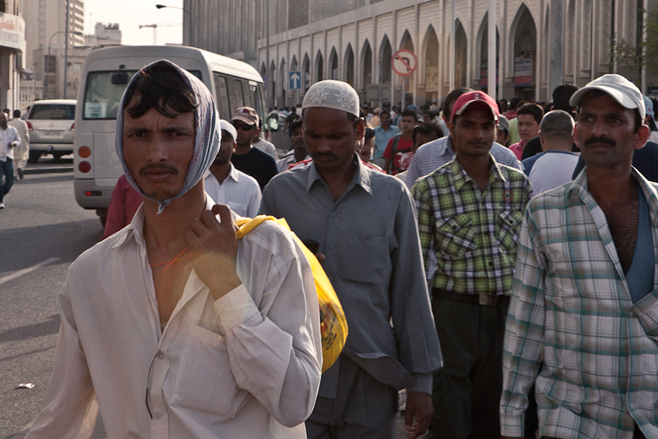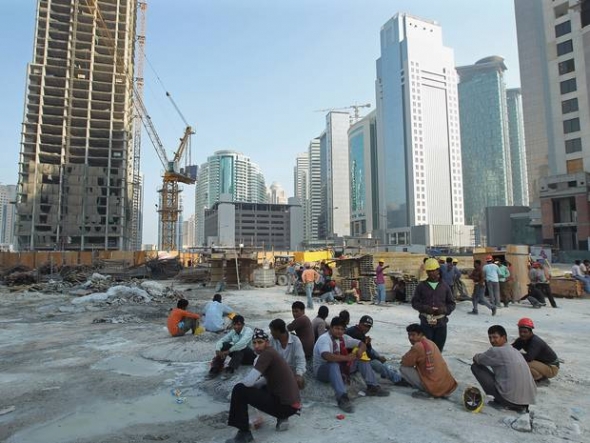

Host nation controversies, of course, are nothing new to international sporting events. The 2008 Beijing Summer Olympics led to calls for boycotts from activists because of the Chinese government’s human rights record. Coverage of the 2014 Socchi Winter Olympics were often overshadowed by the human rights record of Vladimir Putin’s government and its military interventions in Ukraine.
Traditionally, narratives in favour of going ahead with events in controversial host nations have hinged on the argument that the games themselves are symbols of international civility and respect that transcend the actions of governments. But Qatar is different.
Bell Media will not be broadcasting an international sporting event that takes place in spite of slave labour, it will be broadcasting one that takes place on sites built by it.
According to the CBC, “there have been estimates by media and activists that one worker a day is dying on construction sites linked to the World Cup.”

Asked if the kafala system is still on pace to result in as many as 4,000 deaths before 2022, the ITUC’s Sharan Burrow says things might actually be worse:
“Sadly, it looks as if our estimate that 4,000 workers will lose their lives building the World Cup infrastructure may be a significant underestimate, if the Qatar authorities continue to choose to take no real action to change their laws. The Qatar authorities do not collect or make available publicly the figures on the death toll of migrant workers. We know from annual statistics made available by the Embassies of India and Nepal in Qatar that around one migrant worker from each of those two countries dies every two days – at least 400 in total every year. Because the causes of the deaths are hidden – there are no autopsies done on the dead migrant workers – around 70% of the families of the Nepalese workers who died did not receive any compensation or insurance, so these families are now destitute.”
We asked FIFA if any of the money it takes in, including the money from broadcast rights that Bell Media has contributed to, goes to pay for infrastructure costs in the host country. A FIFA spokesperson directed us to an FAQ about its latest financial statements where it is noted that “significant investments were made in public infrastructure” at last year’s Brazil World Cup.
Asked if they intended on participating in qualifers for the 2022 World Cup, Canada Soccer would not answer. “The Men’s National Team is currently focused on qualification for the 2018 World Cup in Russia,” said a spokesperson.
What’s all too clear is that, without aggressive intervention or boycotting from FIFA’s sponsors, its broadcast partners and national football associations around the world – in other words, the people FIFA makes its money off of – the pace of migrant deaths in Qatar will continue unabated.
Over 1,000 people are already dead. Qatar’s government has no timeline to fix this problem, and FIFA has given no penalties for its repeated intransigence. At this point, deference to FIFA’s press releases is not an excuse for anyone involved.